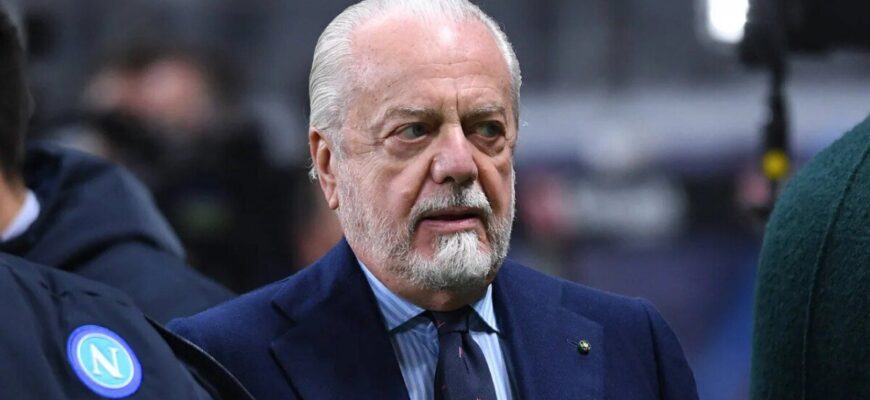In the high-stakes world of Italian football, where the beautiful game often collides with the gritty realities of finance, a familiar tune is playing: allegations of inflated player values and financial irregularities. This time, the spotlight falls on Napoli and its charismatic, often controversial, president, Aurelio De Laurentiis. Yet, despite formal charges, the legal dance for Napoli appears to be choreographed differently than the dramatic steps Juventus once took.
De Laurentiis finds himself under judicial scrutiny from the Rome Public Prosecutor`s Office, facing charges of false accounting. The crux of the matter revolves around the transfers of star striker Victor Osimhen and defender Kostas Manolas between 2019 and 2021. Prosecutors allege that the accounting for these deals might have been, shall we say, enthusiastically managed to inflate Napoli`s capital gains.
Recent revelations, unearthed by *La Repubblica*, paint a picture that, while intriguing, stops short of a full-blown Picasso of culpability. We hear whispers from the past: an SMS from Giuseppe Pompilio, then Napoli`s deputy sporting director, to Cristiano Giuntoli, the sporting director, advising: “You must not write anything. No traces in emails. Whatever you want verbally.” A masterclass in discretion, perhaps, or simply prudent communication in a world where every written word can become evidence? The discerning observer might raise an eyebrow, but legally, an eyebrow-raise is not a conviction.
Then there`s the email from Lille president Lopez, discussing the “nominal value” of a player to “pay a lower price.” And a conversation between Giuntoli and Napoli CEO Andrea Chiavelli, noting Ounas had a “real market value superior to Leandrinho and Llorente.” These fragments offer glimpses into the often-opaque world of player valuation, where subjective assessments can dramatically swing balance sheets. It`s a universe where a player`s worth can be a fluid concept, shaped by market dynamics, potential, and, occasionally, the sheer audacity of negotiation.
The Elephant in the Room: The Juventus Precedent
For many, this immediately evokes memories of the “Prisma” investigation that rocked Juventus, leading to significant sporting penalties, including points deductions and bans for key executives. The Bianconeri faced a barrage of evidence, notably the infamous “Carta Paratici” and a trove of intercepted communications. These were documents and recordings that, to the sports justice system, constituted “smoking guns”—explicit acknowledgements of manipulated player values, sometimes even listing players as mere “X” to denote their manufactured worth. It was, in essence, a direct confession captured on paper and in audio.
Napoli`s Different Path: A Matter of Evidence
Herein lies the crucial distinction for Napoli. While the Roman public prosecutor sees enough to pursue criminal charges against De Laurentiis, the Federal Prosecutor`s Office (FIGC) for sports justice, after meticulously reviewing the evidence, has concluded there are insufficient grounds for a new sporting trial. Why? Because what Napoli`s file lacks are those unequivocal “confessional” documents or wiretaps that proved so damning for Juventus.
The Italian sports justice system, particularly after the previous capital gains trials (where both Juve and Napoli were initially acquitted), established a clear principle: player valuation is inherently relative. To prove fraud or intent to inflate values, there must be certain proof of malice. Those veiled SMS messages and ambiguous emails, while suggesting a desire for discretion, don`t, in the eyes of the FIGC`s Chief Prosecutor Giuseppe Chinè, constitute the irrefutable evidence of intentional deception needed to overturn previous acquittals.
It`s a testament to the intricate and often frustrating differences between criminal and sports law. What constitutes a strong case in one arena might simply be “aggressive accounting” or “prudent risk management” in another. For Napoli, it means navigating a judicial path where the ordinary courts delve into the specifics of alleged financial misconduct, while the sporting authorities appear to lack the definitive “smoking gun” needed to re-open a case that hinges on the subjective art of valuing a player.
So, while the judicial winds may blow fiercely in Rome for Aurelio De Laurentiis, the Partenopei can, for now, breathe a sigh of relief on the sporting front. The ball, it seems, is still in play, but the rules of engagement are distinctly different for each team on this turbulent pitch.







